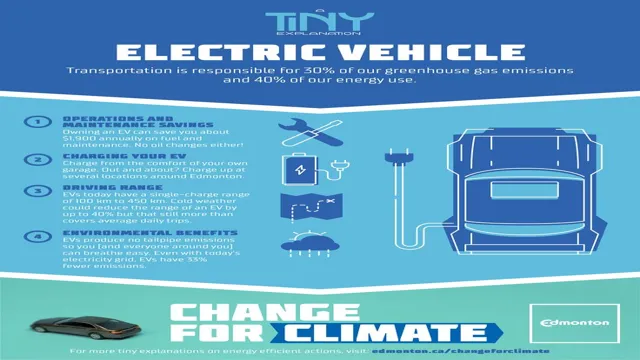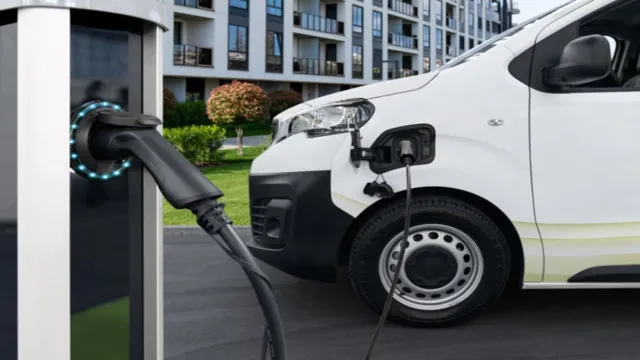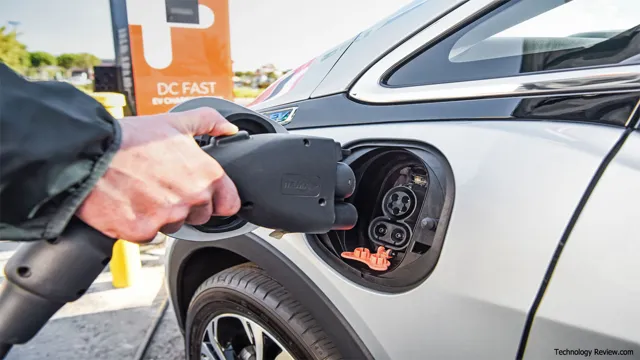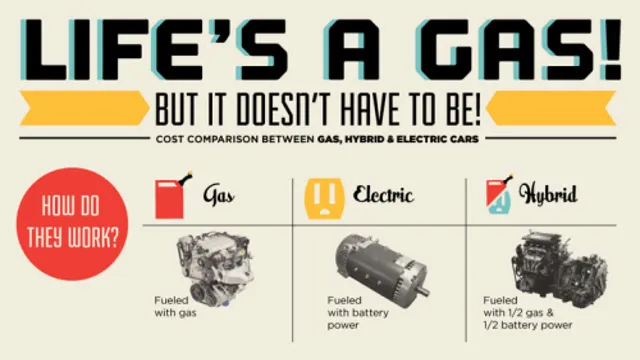The Shocking Truth about Electric Cars: Exploring Their Benefits and Limitations
Are you considering purchasing an electric car? With the increasing popularity of sustainable living and the fight against climate change, electric cars are becoming a more common choice for many consumers. But what are the benefits and limitations of electric cars? In this blog post, we’ll explore both sides of the coin and give you the necessary information to make an informed decision. From environmental to financial impacts, there’s a lot to consider before making the switch from a traditional gasoline-powered car to an electric one.
So, let’s dive in and take a closer look at the pros and cons of electric cars.
Environmental Benefits
When it comes to electric cars, one of the biggest advantages they bring to the table is their positive impact on the environment. By running on electricity instead of gasoline, electric cars produce significantly fewer harmful emissions and contribute to cleaner air and reduced greenhouse gas emissions. This means that electric cars can help to mitigate climate change and reduce the harmful effects of pollution on our health and the environment.
Additionally, electric cars can help to reduce our dependence on fossil fuels, which are a finite resource that can have negative geopolitical implications. However, it’s worth noting that the environmental benefits of electric cars depend on how the electricity used to power them is generated. If it’s produced from renewable sources like solar or wind power, the benefits are even greater.
Overall, while electric cars do have some limitations, their environmental benefits are a major reason why they’re becoming increasingly popular.
Zero Emissions
Zero emissions are an essential part of environmental sustainability, and they offer numerous benefits to both our planet and our lives. By transitioning to zero-emission energy sources like wind, solar, and hydroelectric power, we can significantly reduce harmful greenhouse gas emissions that contribute to climate change. This means cleaner air, healthier ecosystems, and fewer extreme weather conditions that can devastate communities.
But zero emissions go beyond just environmental benefits. They can also create new jobs and boost local economies, as renewable energy production is often decentralized and distributed. Moreover, zero emissions can provide energy security, as they reduce dependency on foreign oil and other volatile fossil fuels.
Overall, transitioning to zero emissions is a win-win for both the environment and society.

Reduced Carbon Footprint
Reducing our carbon footprint is not only good for the planet but also beneficial for our health and well-being. When we reduce our carbon footprint, we contribute to the fight against climate change and the preservation of our natural resources. Fewer greenhouse gas emissions not only reduce the amount of pollution in the air we breathe, but it also lowers the risk of respiratory complications and other hazardous health effects associated with air pollution.
Additionally, by reducing our carbon footprint, we help to conserve energy and prevent natural habitats from being destroyed. Through the use of renewable energy sources such as wind and solar, we can minimize carbon emissions while also reducing our dependence on fossil fuels. Incorporating energy-efficient practices, such as turning off unused electronics, using public transportation, and reducing meat consumption, can also lead to a reduction in our carbon footprint.
By making these small changes in our daily lives, we can contribute to a healthier environment and preserve our planet for future generations.
Cost Savings
When it comes to electric cars, one of the main benefits is the cost savings that they offer. In the long run, electric cars can save drivers a significant amount of money on fuel costs. Since electric vehicles run on electricity, which is cheaper than gasoline, drivers can save money on each charge.
Additionally, electric cars may have lower maintenance costs than traditional gas-powered cars as they have fewer moving parts and require less frequent oil changes. However, there are some limitations to electric cars as well. The upfront costs can be higher, and finding charging stations may be more difficult in some areas.
Additionally, the range of electric cars can be limited, which may not be ideal for long road trips. Despite these limitations, the cost savings of electric cars make them an attractive option for those looking to save money in the long run while still reducing their reliance on fossil fuels.
Lower Fuel Costs
Lower Fuel Costs One of the most significant advantages of using an electric vehicle (EV) is the cost savings. With gas prices skyrocketing, people are turning to EVs for a more economical solution. The cost of charging an electric car is much lower than the cost of filling a tank with gasoline.
On average, an EV can save up to $1,000 per year on fuel costs alone. Not only that, but the maintenance costs for an electric vehicle are lower as well. EVs require less maintenance since they have fewer moving parts and don’t require oil changes.
Long gone are the days of worrying about gas prices and unpredictable fuel prices. With an EV, you can experience the freedom of driving without the constant worry of high fuel costs.
Tax Incentives
Tax incentives can be an attractive tool for businesses looking to reduce costs. They provide a way to save on taxes by offering a deduction or credit for specific actions taken by the business. For example, businesses can receive tax credits for investing in renewable energy sources, hiring veterans, or providing healthcare to their employees.
These incentives not only reduce the amount of taxes owed, but they can also create positive public relations for the business. By taking advantage of these tax incentives, businesses can save money while also contributing to the well-being of their employees and the environment. With careful planning and analysis, businesses can leverage tax incentives to their advantage, resulting in significant cost savings.
Convenience
When it comes to convenience, electric cars arguably have a lot of benefits. For one, they can be charged at home, eliminating the need for frequent visits to the gas station. Additionally, many electric car models offer features like remote start and charging scheduling, which can help owners further streamline the process of owning an electric car.
However, it’s worth noting that there are still limitations to electric cars when it comes to convenience. For example, charging infrastructure is still not as widespread as gas stations, which means long road trips can be a bit more complicated to plan. Additionally, while charging your car at home is convenient, it does require access to a charging port and enough time for the vehicle to charge fully.
Overall, the convenience factor of electric cars is undeniable, but it’s important to consider whether it aligns with your lifestyle and needs.
Quieter Operation
When it comes to home appliances, one of the factors that people often overlook is the amount of noise they make. A noisy appliance can disrupt the peace and quiet of your home, making it harder to relax or concentrate. That’s why quieter operation is a significant convenience that homeowners appreciate.
If you’re looking for a new appliance to add to your home, make sure to consider models that prioritize noise reduction. For example, newer models of refrigerators may have advanced insulation that muffles the sound of the compressor. Meanwhile, dishwashers with more advanced motors can wash dishes with less noise, so you don’t have to worry about disturbing anyone while you clean up after dinner.
In general, quieter appliances make for a more peaceful home, reducing stress and creating a more comfortable environment to live in.
Less Maintenance Needed
When it comes to owning a home or any property, maintenance is an unavoidable task. But with modern advancements and more convenient features, maintenance has become much less of a hassle. One of the biggest advantages is the implementation of smart technology, allowing for remote monitoring and control of appliances and systems.
This not only saves time but can also save money in the long run. For example, a smart thermostat can adjust temperature settings according to the weather and usage, ultimately reducing energy bills. Additionally, there are more durable and low-maintenance materials available for flooring, roofing, and siding.
These options require less upkeep while still providing an aesthetically pleasing appearance. Overall, this increased convenience and decreased maintenance allows for more time and energy to be spent on enjoying your property rather than constantly maintaining it.
Limitations
When it comes to electric cars, there are both benefits and limitations to consider. On the bright side, electric cars emit zero tailpipe emissions and are much quieter than their gas-powered counterparts. They also typically have lower operating costs, as electric fuel is generally less expensive than gasoline.
Additionally, there are often government incentives available for those who purchase electric cars. However, there are also some limitations to consider. One of the main issues is range anxiety – or the fear of running out of power before reaching a charging station.
Charging times can also take a while, and there may not be as many charging stations available as gas stations. Additionally, electric cars may require a higher initial investment, making them less accessible for some consumers. Despite these limitations, many people find that the benefits of electric cars outweigh the downsides.
They offer a cleaner and more sustainable form of transportation, and as technology continues to improve, it’s likely that these limitations will become less of an issue.
Limited Range
When it comes to electric vehicles, one of the most obvious limitations is their limited range. Unlike traditional gas-powered cars, electric cars can only travel a certain distance before they need to be recharged. However, advancements in technology have led to longer-range batteries, and some newer electric cars now have ranges of over 300 miles.
Despite this, range anxiety is still a real concern among many potential electric vehicle buyers. The good news is that with proper planning, it’s possible to overcome this limitation. By understanding the range of your electric car and planning your route accordingly, you can avoid the stress of running out of power on the road.
Additionally, with the growing availability of charging stations, recharging your EV on the go is becoming easier than ever. Overall, while limited range remains a challenge for electric vehicles, it’s a challenge that can be managed with the right knowledge and planning.
Long Charging Times
Long charging times can be a serious limitation when it comes to using electronic devices. It’s frustrating when you have to wait for hours for your phone, laptop or tablet to charge. Unfortunately, this is a problem that many people face on a daily basis.
Long charging times are due to a few factors. One factor is the battery capacity. The bigger the battery, the longer it takes to charge.
Another factor is the charging method. Some devices charge faster than others. And finally, the amount of power going into the battery affects the charging time.
The good news is that manufacturers are constantly improving battery technology and charging speeds. So, while long charging times are still an issue, they are becoming less of a limitation. In the meantime, it’s important to make sure you have backup power sources, like portable chargers, so you can keep your devices charged and ready to use.
Higher Upfront Costs
Higher Upfront Costs When it comes to investing in more sustainable options for your home or business, one of the biggest limitations you may encounter is the higher upfront costs. Many sustainable products and technologies, such as solar panels, energy-efficient appliances, and eco-friendly materials, often come with a heftier price tag than their traditional counterparts. While the long-term savings and positive impact on the environment can outweigh these costs in the long run, it can be difficult for individuals and businesses to justify the initial investment.
It’s important to weigh the costs and benefits before making any decisions, and consider options such as incentives and financing programs that may be available to help ease the financial burden. But ultimately, it’s up to each individual and business to determine what they’re willing and able to invest in creating a more sustainable future.
Conclusion
In conclusion, electric cars offer numerous benefits such as being environmentally friendly, cost-effective in the long run, and quiet and smooth to drive. However, limitations such as their range and limited availability of charging stations can be a concern for some drivers. But at the end of the day, it’s clear that electric cars are the wave of the future, and as technology continues to improve and evolve, we can look forward to even more exciting developments in the electric vehicle market.
So, let’s power up and steer towards a cleaner, brighter, and more sustainable future on the roads.”
FAQs
What are the benefits of electric cars?
Electric cars have several benefits, including lower emissions, lower operating costs, and a quiet and smooth driving experience.
How do electric cars compare to traditional gasoline cars in terms of performance?
While electric cars may have lower horsepower and torque than traditional gasoline cars, they make up for it with instant acceleration and a more responsive driving experience.
Are there any limitations to owning an electric car?
One major limitation is the range of electric cars, as they typically have shorter ranges than traditional gasoline cars and may require more frequent charging stops. Additionally, charging infrastructure may be lacking in certain areas.
What is the environmental impact of electric cars compared to traditional gasoline cars?
Electric cars have a lower environmental impact than traditional gasoline cars due to their lower emissions and reliance on renewable energy sources. However, the production of electric car batteries can have environmental consequences as well.



